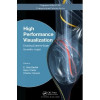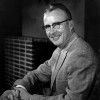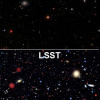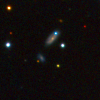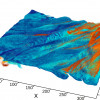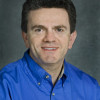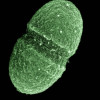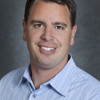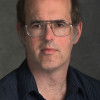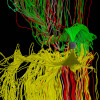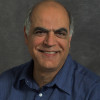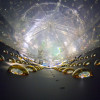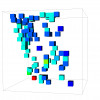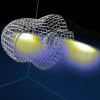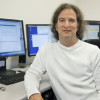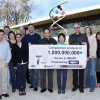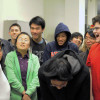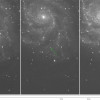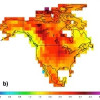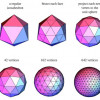News Center
CRD Researchers Edit Book on High Performance Visualization
Wes Bethel and Hank Childs of CRD, along with Charles Hansen of the University of Utah, have edited the book High Performance Visualization: Enabling Extreme-Scale Scientific Insight. he book focuses on algorithm design, implementation, and optimization for visualization and analysis tools on emerging multi- and many-core platforms. Read More »
Now Accepting Applications for Alvarez Fellowship!
Apply now for the Luis W. Alvarez Postdoctoral Fellowship in Computational Science, sponsored by Lawrence Berkeley National Laboratory’s Computing Sciences Directorate. Researchers in computer science, applied mathematics or any computational science discipline who have received their Ph.D. within the last three years are encouraged to apply. The successful applicant will receive a competitive salary and excellent benefits.
Read More »
Berkeley Lab Computational Scientists to Help Illuminate Dark Universe
Aiming at illuminating the 95 percent of the universe known as dark matter and dark energy, researchers in Berkeley Lab’s Computational Research Division are working to boost the success of next-generation cosmology experiments. Read More »
Supernovae of the Same Brightness, Cut from Different Cosmic Cloth
The Palomar Transient Factory team, including researchers from CRD's Computational Cosmology Center, presents the first-ever direct observations of a Type 1a supernova progenitor system. Read More »
Financial Firms Support CIFT’s Assessment of HRC Role in Market Stability
CIFT has received $100,000 in research donations to study and promote the use of leading edge supercomputing and data intensive science for improving stability, regulation, and enforcement in U.S. markets. Read More »
Bringing The Review of Particle Physics Online
Scientists from the international Particle Data Group teamed up with computer engineers in CRD's Advanced Computing for Sciences Department to develop a web-based workflow system and an interactive online version of The Review of Particle Physics. Read More »
Julian Borrill Unveils Cambridge’s Cosmology Supercomputer
Julian Borrill, co-leader of the Computational Cosmology Center in the Computational Research Division, gave an invited talk at the Numerical Cosmology 2012 conference held July 17-20 in Cambridge, England, and also chaired the session in which the university’s new supercomputer was officially launched. Read More »
Sifting Through a Trillion Electrons
Using tools developed by Berkeley Lab Computational Research, astrophyscists were able to mine a trillion-particle 3D magnetic reconnection dataset in about three seconds, and visualize the results for analysis. Each time-step of this simulation is a massive 32 terabyte file, this is the first time a dataset of this magnitude has been queried and visualized so quickly. Read More »
Erich Strohmaier and the TOP500: A list that’s taken on a life of its own
In June 2012, Erich Strohmaier will present the 39th edition of the TOP500 list during the opening session of the International Supercomputing Conference in Hamburg, Germany. This profile tracks the beginning of the list and Strohmaier's career. Read More »
Berkeley Lab Scientists Help Define the Healthy Human Microbiome
The human microbiome’s exact function, good and bad, is poorly understood. But that could all change now that the normal microbial make-up of healthy humans has been mapped for the first time with help from Berkeley Lab's Computational Sciences Division. Read More »
Hank Childs Wins 2012 DOE Early Career Award
Hank Childs of the Computational Research Division’s Visualization Group has been honored with a 2012 Department of Energy Early Career Award. Read More »
John Bell Elected to National Academy of Sciences
John Bell, an applied mathematician and computational scientist who leads the Center for Computational Sciences and Engineering at Lawrence Berkeley National Laboratory, has been elected to the National Academy of Sciences. Read More »
Visualizing Processes That Lead to “Cracks” in the Earth’s Cocoon
Earth is mostly protected from solar radiation, by the magnetosphere. But sometimes the magnetosphere “cracks,” allowing radiation to seep in and wreak havoc on power grids and satellites. This phenomenon is not well understood, so scientists from UC San Diego ran simulations to investigate what happens. In the process, they generated approximately 3 petabytes of data, and reached out to Berkeley Lab’s Burlen Loring to develop customized visualization techniques for analyzing data. Read More »
Berkeley Lab-led Institute to Help Solve Data-intensive Science Challenges
Energy Secretary Steven Chu announced a $25 million five-year initiative to help scientists better extract insights from today’s increasingly massive research datasets, the Scalable Data Management, Analysis, and Visualization (SDAV) Institute. SDAV will be funded through DOE’s Scientific Discovery through Advanced Computing (SciDAC) program and led by Arie Shoshani of Lawrence Berkeley National Laboratory (Berkeley Lab). Read More »
Researchers Discover a New Kind of Neutrino Transformation
Some unprecedentedly precise measurements from the Daya Bay Neutrino Experiment are revealing how electron antineutrinos “oscillate” into different flavors as they travel. This finding may eventually solve the riddle of why there is far more ordinary matter than antimatter in the universe today. Read More »
Carbon Dioxide Catchers
CRD's Maciej Haranczyk and colleagues have developed a computational tool that can help researchers sort through vast databases of porous materials to identify promising carbon capture candidates—and at record speeds. They call it Zeo++.
Read More »
John Shalf's Paper is Among the Best in History of HPDC Conference
“The Cactus Code: A Problem Solving Environment for the Grid,” a paper co-authored by John Shalf of the Computational Research Division, has been selected as one of the top papers in the 20 years of publications from HPDC, the International ACM Symposium on High-Performance Parallel and Distributed Computing (HPDC). Read More »
Berkeley Lab Mathematicians Win Cozzarelli Prize
James Sethian and Robert Saye, mathematicians who both hold joint appointments with the Lawrence Berkeley National Laboratory (Berkeley Lab) and the University of California (UC) Berkeley, have won the 2011 Cozzarelli Prize for the best scientific paper in the category of Engineering and Applied Sciences. Read More »
Breaking Ground on the Computational Research and Theory Facility
Energy Secretary Steven Chu, along with Berkeley Lab and UC leaders, broke ground on the Lab’s Computational Research and Theory (CRT) facility, Wednesday, Feb. 1. The CRT will be at the forefront of high-performance supercomputing research and be DOE’s most efficient facility of its kind. Read More »
Billions of Genes and Counting!
Developed by CRD's Biological Data Management & Technology Center, the IMG/M data management system, which supports the analysis of microbial communities sequenced by the Joint Genome Institute, crossed the boundry of 1 billion genes recorded in the system—more than any other similar system in the world. Read More »
Inspiring Careers in Science Research
In an effort to expose high school students to careers in science research, the Lawrence Berkeley National Laboratory’s (Berkeley Lab) Computing Sciences Diversity Outreach Program partnered with San Francisco’s Lowell High School research program. Read More »
Closest Type Ia Supernova in Decades Solves a Cosmic Mystery
Even as the "supernova of a generation" came into view in backyards across the northern hemisphere last August, physicists and astronomers who had caught its earliest moments were developing a surprising and much clearer picture of what happens during a titanic Type Ia explosion. Now they have announced the closest, most detailed look ever at one of the universe’s brightest “standard candles,” the celestial mileposts that led to the discovery of dark energy. Read More »
A Better Way to ID Extreme Weather Events in Climate Models
A team of researchers that includes Berkeley Lab scientists are using state-of-the-art methods in data mining and high-performance computing to quantify extreme weather phenomena in the very large datasets generated by today’s climate models. Their work will help scientists predict how climate change impact the frequency of extreme weather events. Read More »
Today’s Severe Drought, Tomorrow’s Normal
While the worst drought since the Dust Bowl of the 1930s grips Oklahoma and Texas, scientists are warning that what we consider severe drought conditions in North America today may be normal for the continent by the mid-21st century, due to a warming planet. Read More »
Supercomputers Take a Cue from Microwave Ovens
To build the break-through supercomputers that climate researchers need to model clouds, scientists are taking a cue from consumer electronics where everything from chips to batteries to software is optimized to the device’s application. Read More »









